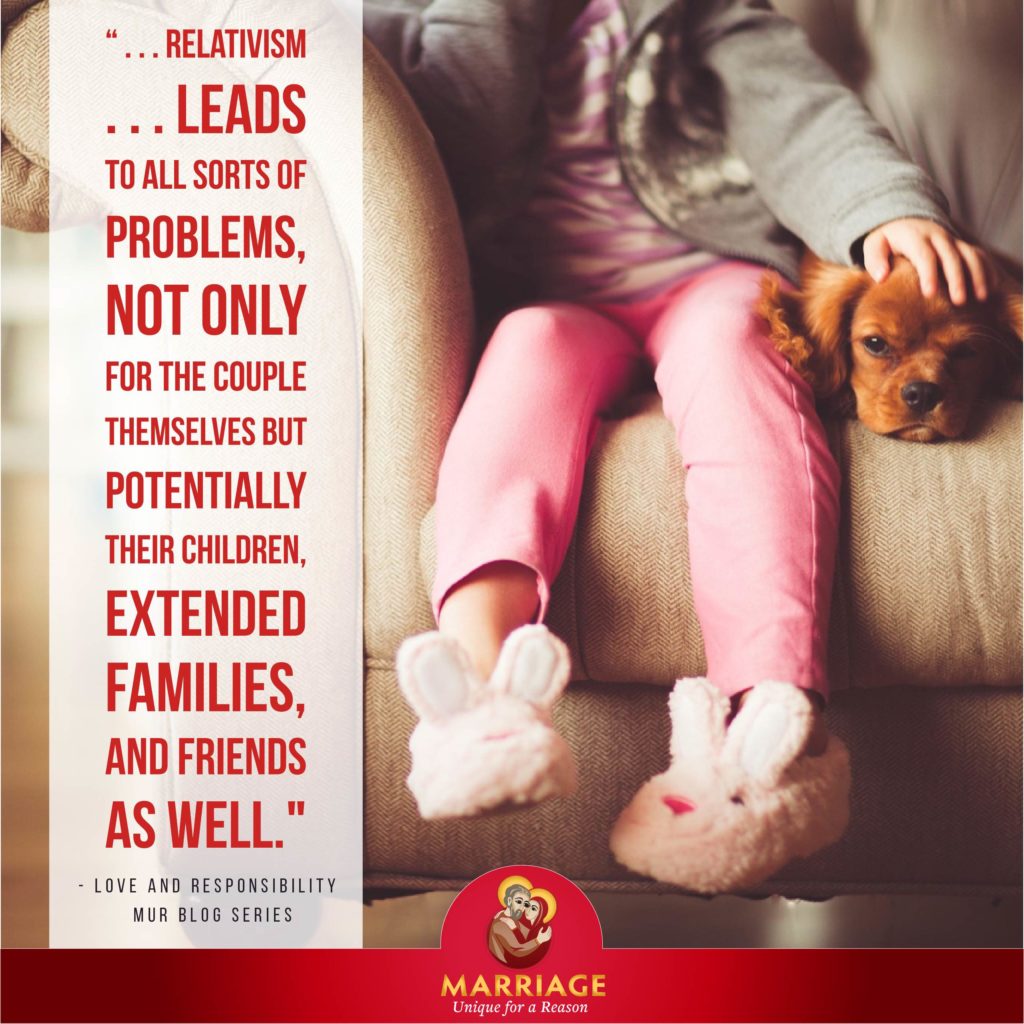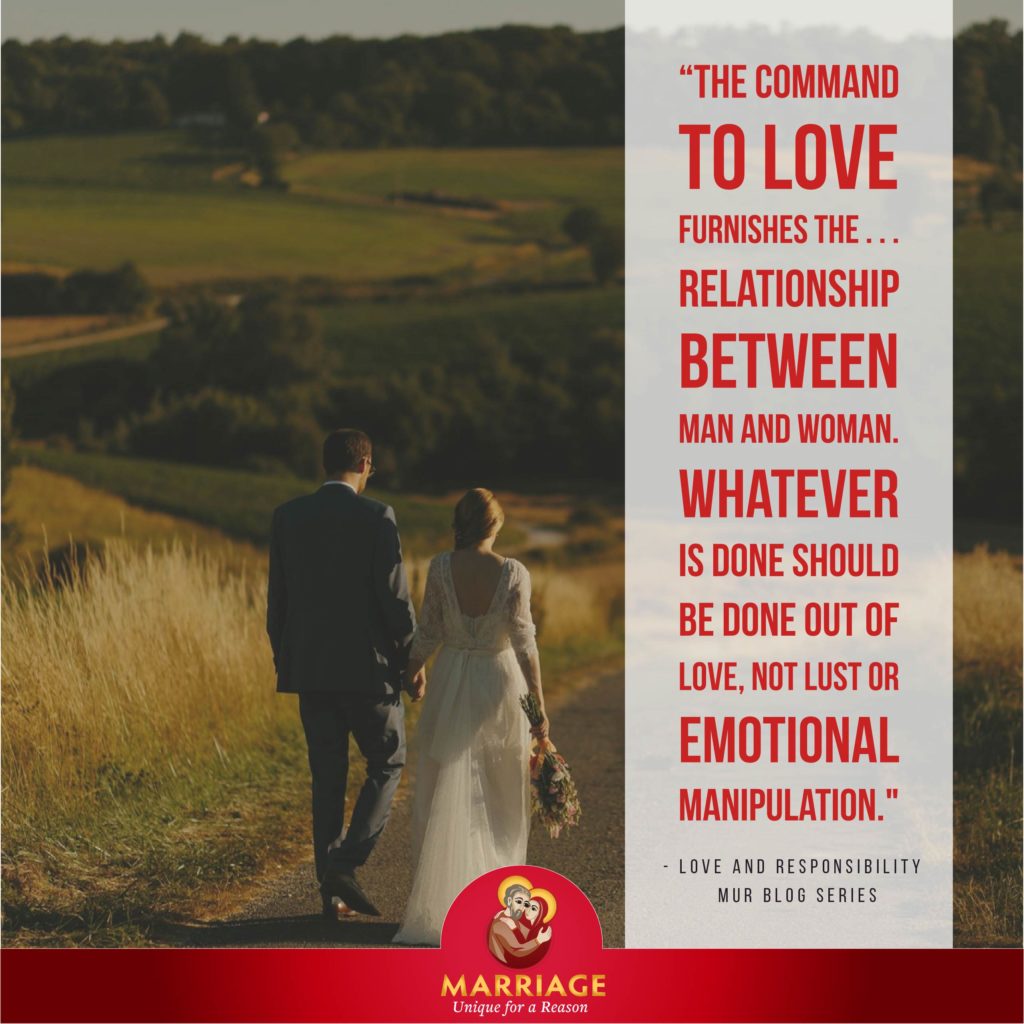 To begin his formal ethical analysis of love in Love and Responsibility, Karol Wojtyla sets out two fundamental ways through which to consider ethics: experience or virtue.
To begin his formal ethical analysis of love in Love and Responsibility, Karol Wojtyla sets out two fundamental ways through which to consider ethics: experience or virtue.
Ethics of Experience:
Wojtyla starts with the use of experience as a guideline for ethics. Situationalism (or relativism) sees every situation as unique in such a way that there can be no objective rules about behavior. What is right or wrong in a given situation just  depends on the situation and the people in it. The people themselves are the only ones who can know (or say) what is good for them. So when it comes to the relationship between a man and a woman, anything goes as long as it “works” for the couple. Hopefully, it is obvious that this kind of ethical system leads to all sorts of problems, not only for the couple themselves but potentially their children, extended families, and friends as well.
depends on the situation and the people in it. The people themselves are the only ones who can know (or say) what is good for them. So when it comes to the relationship between a man and a woman, anything goes as long as it “works” for the couple. Hopefully, it is obvious that this kind of ethical system leads to all sorts of problems, not only for the couple themselves but potentially their children, extended families, and friends as well.
Ethics of Virtue:
In contrast, according to the ethics of virtue, it is a person’s duty to choose what is good. What is good is not decided by the person himself but rather determined by some objective rule or norm. “For the freedom of the human will is most fully displayed in morality through duty,”[1] Wojtyla writes. A duty is discovered, not created, through applying a norm. For Wojtyla, the personalistic norm (i.e. the command to love) furnishes the “should’s” and “should not’s” of the relationship between man and woman. Whatever is done should be done out of love, not lust or emotional manipulation.  Wojtyla argues that without ethical completeness (respect, love for the other over oneself, etc.), there is no psychological completeness to love either. In other words, if love as a virtue is not present in the relationship between a man and a woman, it will not even be psychologically satisfying in the end because it is not authentic love.
Wojtyla argues that without ethical completeness (respect, love for the other over oneself, etc.), there is no psychological completeness to love either. In other words, if love as a virtue is not present in the relationship between a man and a woman, it will not even be psychologically satisfying in the end because it is not authentic love.
Consider these two approaches to ethics as if they were applied to eating. Situationalism would say that whatever you eat is fine, if you think it is. Doughnuts every day? Go for it! Only you can know if that is a good breakfast for you. Virtue, on the other hand, requires you to consider the objective nutritional value of the food and act accordingly. That doesn’t mean that you always make the right decision, but that you know there is a right to strive for.
So how do a man and woman grow in the Christian virtue of love/charity? Stay tuned!
Click the link below to read ALL of MUR’s Love and Responsibility blog series: https://goo.gl/6itvJH
[1] Wojtyla, Karol. Love and Responsibility (San Francisco: Ignatius Press, 1993), p. 120.

Leave a Reply